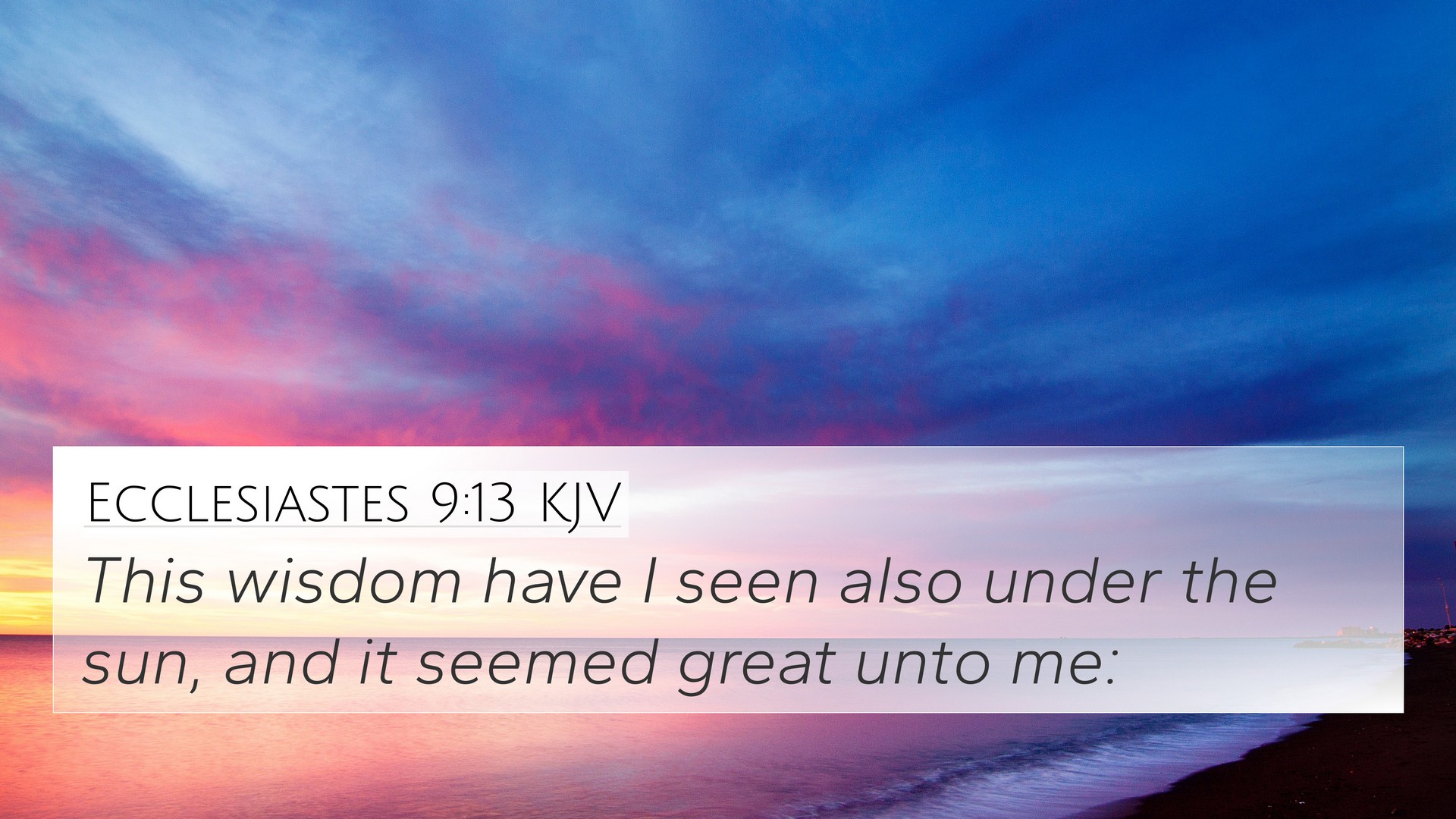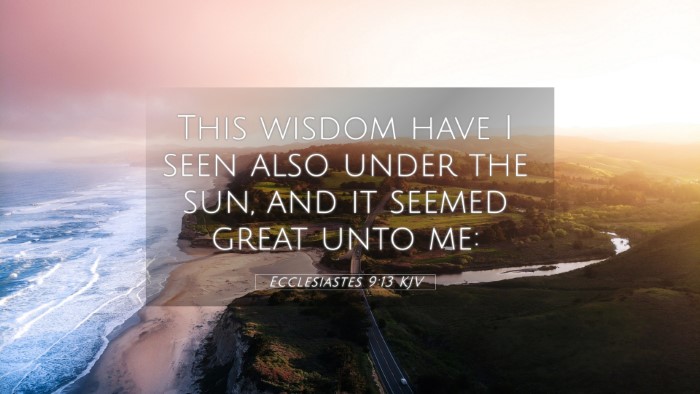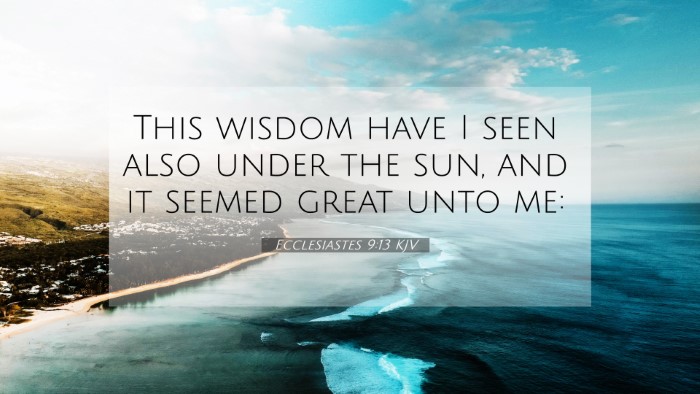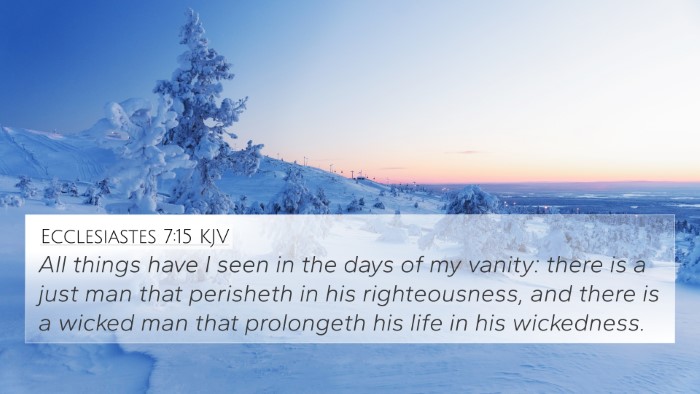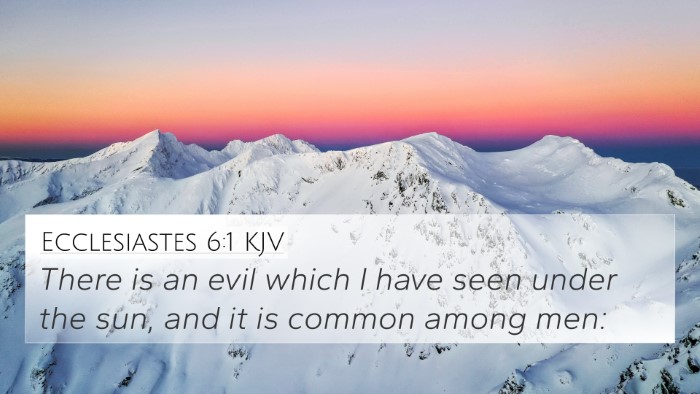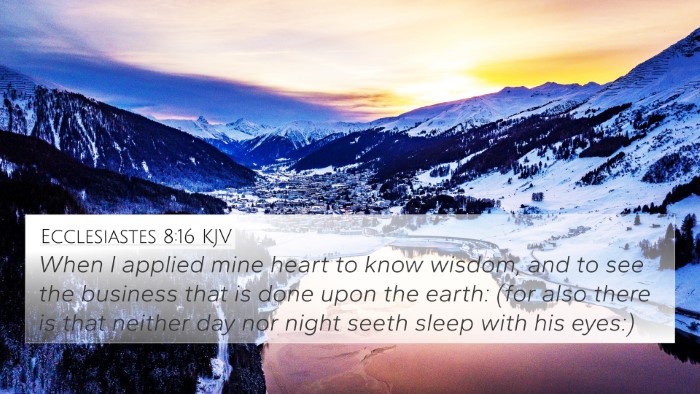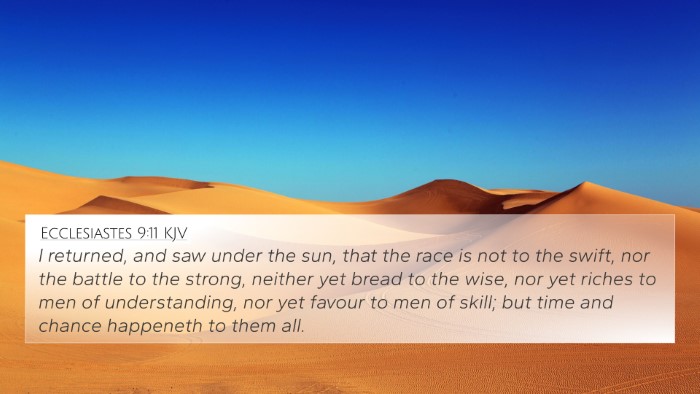Understanding Ecclesiastes 9:13
Ecclesiastes 9:13 states:
"This wisdom have I seen also under the sun, and it seemed great unto me."
This verse introduces an observation made by the Preacher (often considered Solomon), reflecting on the nature of wisdom and its perceived value in real life. Below is a combined insight from various public domain commentaries on this verse.
Summary of Insights
The verse signifies a turning point in the narrative of Ecclesiastes. The Preacher has traversed various themes, from vanity and the fleeting nature of life to the pursuit of wisdom. Here, he relays a significant piece of insight observed: that the wisdom he encountered bears great weight in understanding life and its complexities.
Key Themes and Interpretations
- Wisdom in the World: The phrase "wisdom have I seen" implies that the Preacher is not merely theorizing but has witnessed practical wisdom in action. It acknowledges the value of observation and experience in gaining understanding.
- Human Experience: The mention of “under the sun” hints at a worldly context. The Preacher recognizes wisdom is vital in navigating life's challenges and complexities.
- Greatness of Wisdom: The phrase "it seemed great unto me" emphasizes the recognition of wisdom’s impact. It’s a call to appreciate wisdom's role in human life despite its often unrecognized value by society.
Connections with Other Bible Verses
Ecclesiastes 9:13 resonates with numerous other scriptures, underscoring its themes of wisdom and the human experience. Here are cross-references that relate contextually or thematically:
- Proverbs 4:7: "Wisdom is the principal thing; therefore get wisdom." - This emphasizes the paramount value of wisdom in life.
- James 1:5: "If any of you lack wisdom, let him ask of God, that giveth to all men liberally..." - Encouragement to seek divine wisdom.
- Ecclesiastes 7:12: "For wisdom is a defense, and money is a defense..." - Highlighting wisdom's protective nature.
- Proverbs 1:20-21: "Wisdom crieth without; she uttereth her voice in the streets..." - Illustrating wisdom's accessibility and relevance in daily life.
- 1 Corinthians 1:25: "Because the foolishness of God is wiser than men..." - A contrast between worldly wisdom and divine perspective.
- Ecclesiastes 2:13: "Then I saw that wisdom excelleth folly..." - A direct comparison that reflects on the value of wisdom.
- Proverbs 3:13-15: "Happy is the man that findeth wisdom..." - Further affirming the joy and fulfillment that wisdom brings.
Thematic Bible Verse Connections
By examining Ecclesiastes 9:13 alongside other verses, one can appreciate the thematic links throughout scripture regarding wisdom:
- The duality of wisdom and folly is a consistent motif throughout the scriptures, showcasing the clear distinctions and implications of each.
- The promise of wisdom leading to life fulfillment and protection appears across both Old and New Testament texts.
- Wisdom is portrayed not only as knowledge but as meaningful application in one's life, reinforcing practical living.
Tools for Bible Cross-Referencing
Understanding these connections can be further enhanced through various tools:
- Bible Concordance: A helpful resource for locating specific themes or words.
- Bible Cross-Reference Guide: To navigate related verses efficiently.
- Bible Reference Resources: Such as commentaries and study guides that provide in-depth insights.
- Cross-Referencing Bible Study Methods: Techniques that encourage deeper study of interconnected verses.
Conclusion
Ecclesiastes 9:13 serves as a potent reminder of the value of wisdom in our lives, urging believers and seekers alike to explore the wealth of insights found in scripture. Through careful study and cross-referencing of related verses, one can draw deeper understanding and appreciation for the biblical texts and their teachings.
